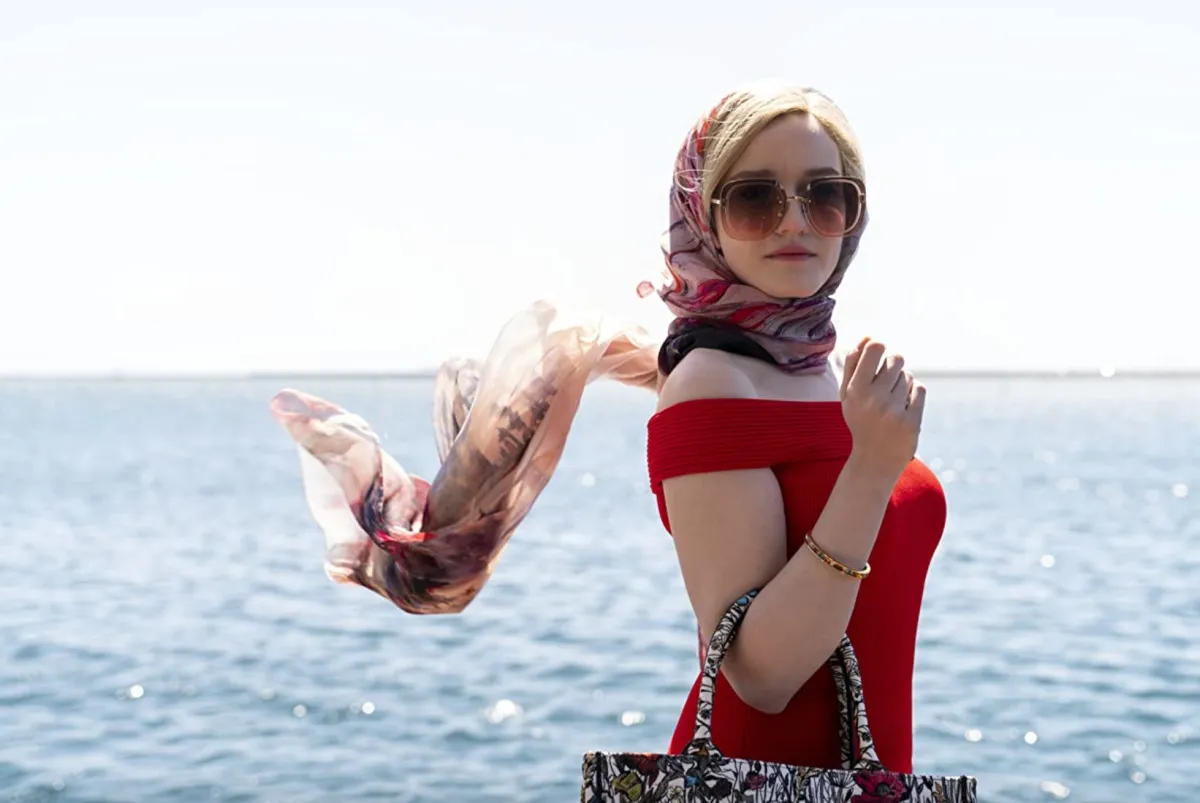Inventing Anna, the latest miniseries from the Shondaland x Netflix collaboration, was a show I’d been curious about for a while. As a true-crime nerd, I followed the story, and I thought it would be an interesting tale to dramatize. Yet, what came about was … a mess.
A Russian-German 25-year-old manages to scam banks, and members of the NYC elite scene, all by pretending to have a trust fund and appearing superior to everyone around her. It sounds like a twisted Great Gatsby. I watched the first five episodes, and I got an uneasy feeling that the show was empathizing too much with Anna Sorokin (Julia Garner) to really tell its story in the best way possible. As I reached the trial segment of the series, it became abundantly clear that it was also drinking the scammer Flavor Aid.
Anna ends up taking her friends to Morocco, and at this point, the loan she’s trying to secure to start her “Anna Delvey Foundation” has not come through yet. She has no money but is still pretending it’s coming at any second. In Morocco, that doesn’t fly, and Anna’s friend Rachel (Katie Lowes) ends up being charged $63,000 when she puts her company credit card on the line as their card on file at their hotel, where staff is becoming increasingly impatient with Anna’s stalling. Anna, all the while, is on her phone, waiting for the loan that never comes.
Somewhere down the line, Rachel becomes the person the show decides is the bad guy, and it is the moment where the show borders on becoming unwatchable.
Rachel begs Anna for the money for 6 months, being at risk of losing her job and home, yet Anna acts like it was no big deal. Neff (Alexis Floyd) continues to stand up for her friend, saying that Anna is the real deal—even though there is nothing to prove that. For some reason, Neff—and later on, both Vivian Kent (a fictionalized version of journalist Jessica Pressler, who broke the story) and her lawyer Todd Spodek—seems to really think Anna’s the victim because she only scammed banks and the rich.
The girl boss, gaslight, gatekeep tea is hot. I mean, it is already an issue that Anna was paid $320,000 for the story, which paid off her creditors, while the show shames Rachel for taking money for a book deal. The series twists it around to say Rachel was “lucky” to meet Anna, and because she was the reason Anna got arrested, she’s the bad guy.
That is ridiculous, and it is the moment that the show falls apart. Anna Sorokin is also a white person, who was only able to pretend to be a “German heiress” because of that whiteness. Putting that on a pedestal is just gross, especially because it is not as if we treat non-white grifters with this sort of prestige.
When Anna fell apart, I didn’t feel anything, because she didn’t care about the people she hurt and manipulated—but the show still expected us to root for her. This isn’t like Hustlers, where we saw working-class women scamming the Wall Street bros. This is just a woman who wanted to be famous and tricked everyone along the way.
(image: Netflix)










Published: Feb 23, 2022 05:36 pm